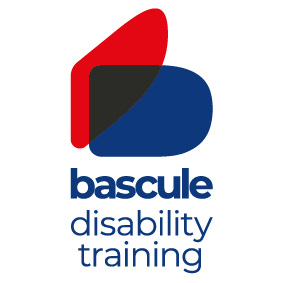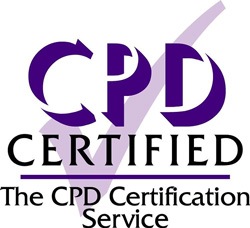Breaking the Silence

Encouraging Reasonable Adjustment Requests in the Workplace
When it comes to supporting employees with disabilities, reasonable adjustments are not only critical in helping people be the best version of themselves, but they are also a legal duty. Despite this, a recent study found that many staff members were not asking for reasonable adjustments, even when they are fully entitled to them. The survey Disability Inclusion @ Work 2024: A Global Outlook found that three quarters of respondents who had disclosed their disability, neurodiversity or chronic health condition had not asked their current employer for any workplace accommodations.
So why is this? Why would staff prevent themselves from reaching their best potential, improving their wellbeing, health, productivity and life in general, when the Equality Act 2010, states they are legally entitled to it?
Well, the same study asked this very question and the main reasons for the reluctance to request support were very interesting. The key reasons are listed below, along with added guidance on how we think employers can change these motives for avoidance:
- I don’t think I need reasonable adjustments (43%)
The survey revealed that the biggest reason for avoiding a request was that staff believed that they didn’t need them. Now, there could be a whole host of reasons why this is the case, and it’s worth exploring a few. Firstly, there may well be a number of people for whom, their disability does not impact their day-to-day life in the workplace- which is fine. Reasonable adjustment is not compulsory simply because you have a disability. However, if you are an employer, it should be considered that many staff will feel that their disability is “not severe enough” to warrant adjustments or will worry about appearing weak. Whenever trying to promote the fact that adjustments are readily available, it’s also important to be sensitive and respect the staff member’s autonomy and independence. You should also consider that staff may not fully understand exactly what these adjustments can potentially be, and what they could be entitled to. For example, a staff member may perceive these adjustments as physical assistance, (equipment, software, furniture for example), but they may not be aware that adjustments like flexibility, or occasional homeworking are also available as a form of support, which could in fact help them throughout their daily life. This can be addressed by educating staff about exactly what reasonable adjustment can be, so that if they do still believe they are not needed, they make that decision with all the relevant knowledge about adjustments and what can be offered.
Most of all, open dialogue must be maintained to ensure the support on offer is understood, that challenges don’t occur further down the line, and that staff feel comfortable changing their minds should they understand that there is an adjustment available that will make their working lives easier. Also, try and designate a disability champion or HR representative to handle requests sensitively, and confidentially, and this way, employees will feel more comfortable approaching someone to openly find out more about adjustments, as they know they specialise in this area.
One should also look to change the language used in this area so that people can bring their best self to work, coping is fine but excelling in the workplace is better for employee and employer alike.
- I Don’t Think My Employer Will Grant the Request (20%) - I Don’t Believe My Employer Will Provide What I Need (15%)
To eliminate the concerns that staff with disabilities have around adjustment refusal you should first make your commitment to providing an inclusive workplace through employee support glaringly obvious via internal and external comms. Gain accreditations like Disability Confident employers and internally share success stories and case studies of staff members who have benefited from adjustments to inspire others. Making your dedication clear will encourage those who have less faith to at least start the conversation and see what their options are. If the adjustment they are thinking about is above and beyond the company’s ability or budget, always have an open discussion and work together to think about the many ways you may be able to compromise. For example, can you support the employee to make an Access to Work application?
- I am worried it would be seen negatively by my supervisor (20%)
Concerns about how senior staff might perceive or judge employees with disabilities are common and highlight a crucial issue: the need for better disability awareness training and a shift in workplace culture. When senior staff receive comprehensive training tailored to supporting employees with disabilities, it fosters a more inclusive environment.
A workplace culture that actively reflects this inclusivity signals to employees with disabilities that their needs are understood and valued. They will recognise that their managers possess genuine empathy and a solid understanding of disability-related challenges. This trust-building approach encourages employees to feel comfortable requesting adjustments, knowing their supervisors hold positive, supportive perceptions of disability.
- I don’t know how to do this (18%)
If navigating the process of requesting accommodations feels confusing or unclear, it’s a strong indicator that a cultural shift is needed to create a truly inclusive workplace. Managers should prioritize fostering an open-door policy for discussions about disability, ensuring employees feel supported and heard. It should also be made clear to managers who holds the budget for any reasonable adjustments, so they don’t make assumptions about it costing their team additional money or impact their performance targets.
To simplify the process, provide clear, step-by-step guidance on how to request accommodations. Use accessible, straightforward language in policies and ensure that forms or procedures are easy to complete and submit. Additionally, when all staff members are educated about the benefits of inclusivity and equipped to support colleagues with disabilities, requesting adjustments becomes a more seamless and natural part of workplace operations. This systematic approach can help ensure that everyone feels empowered to seek the support they need, and not feel bewildered about who, where and how to go about it.
- I have previously asked for accommodations at a different employer and had a negative experience (11%)
There is very little you can do about a staff member’s past experiences, other than make it clear to them from the moment they join you, that you are an employer who is wholly committed to inclusion, and fully supportive of people with disabilities’ needs. One way of doing this is by providing disability awareness on-board training as every staff member (from all levels of seniority), joins the organisation. Here you can outline the benefits of reasonable adjustment and how the company welcomes requests. This sends an immediate message that inclusion is culturally embedded within the ethos of the organisation, and that the experiences they have previously had will not be replicated.
In our experience at Bascule, as soon as people are aware that their company is dedicated to educating its workforce around disability, they become more open to disclosure of their disability, and therefore open to discussions around ways that they may request support.
To summarise- Supporting employees with disabilities should always be done with an understanding around the barriers they face, and with knowledge that reasonable adjustment is only a means to the tools they need to bring the best version of themselves to work. By taking steps to ensure staff feel comfortable, trusted and confident in applying for reasonable adjustment, you will empower them to thrive. The key to this is communication, empathetic leadership, clear policies and simple processes, but most of all – an inclusive culture and a genuine commitment to ensuring all colleagues are disability aware.



